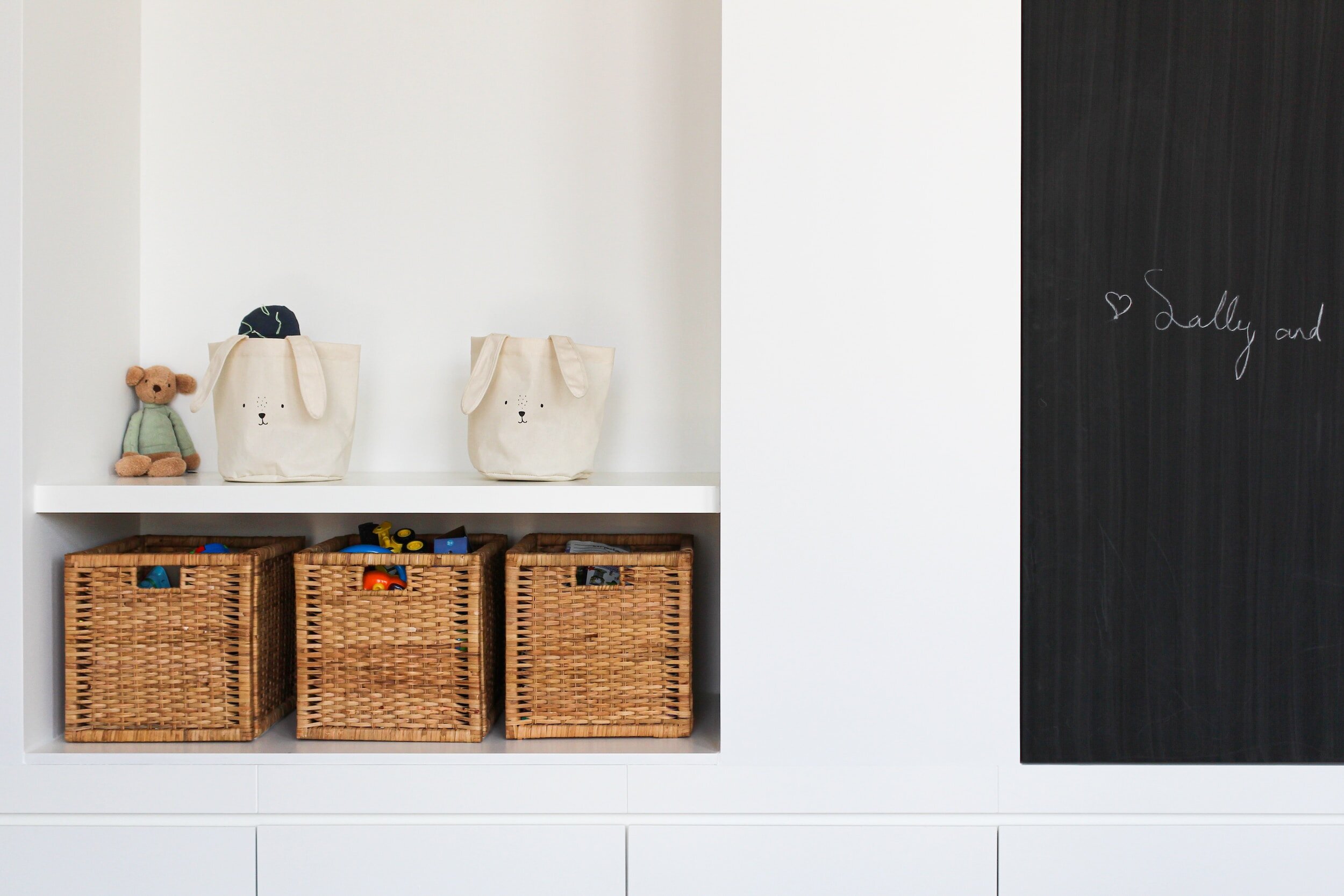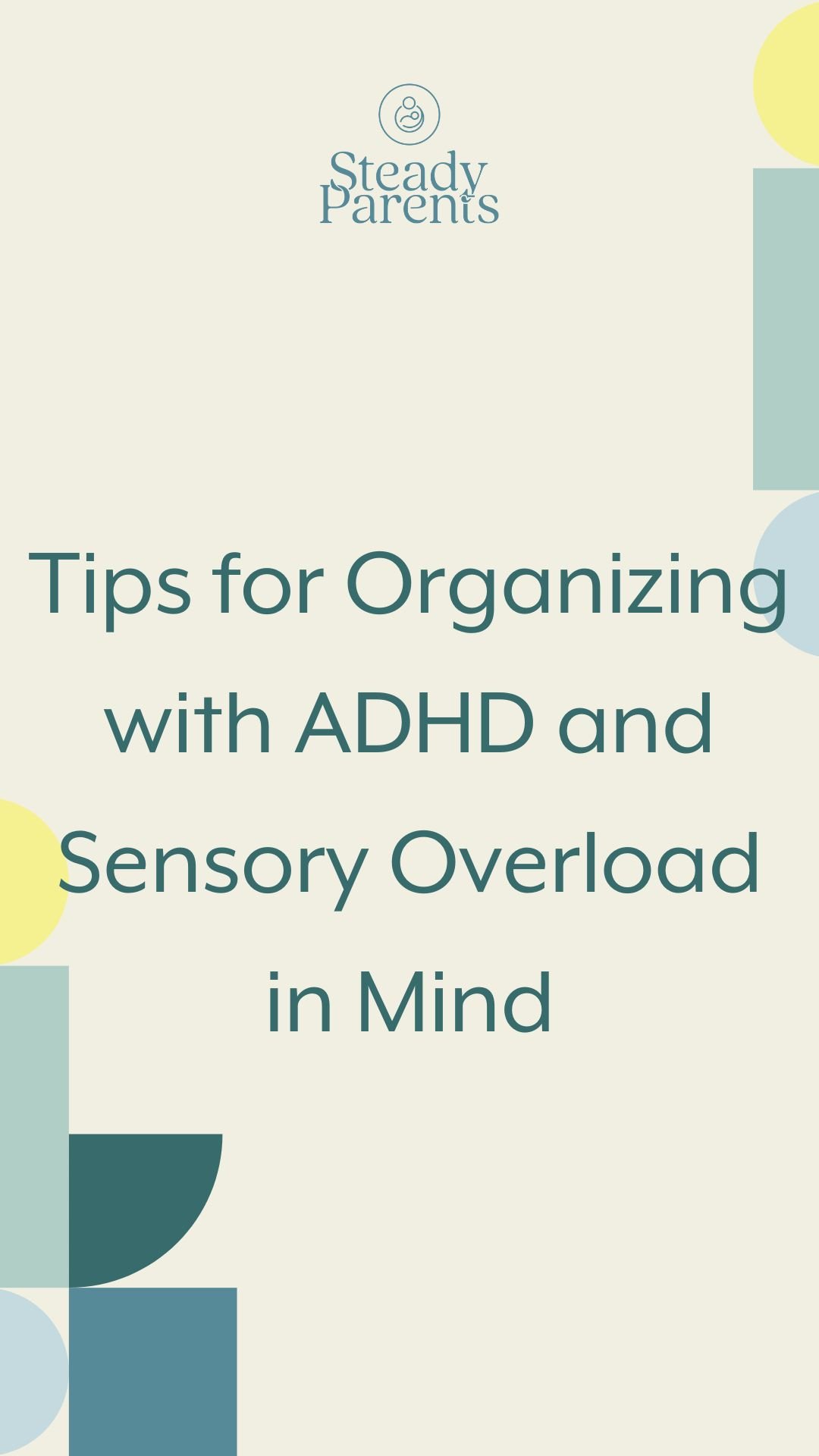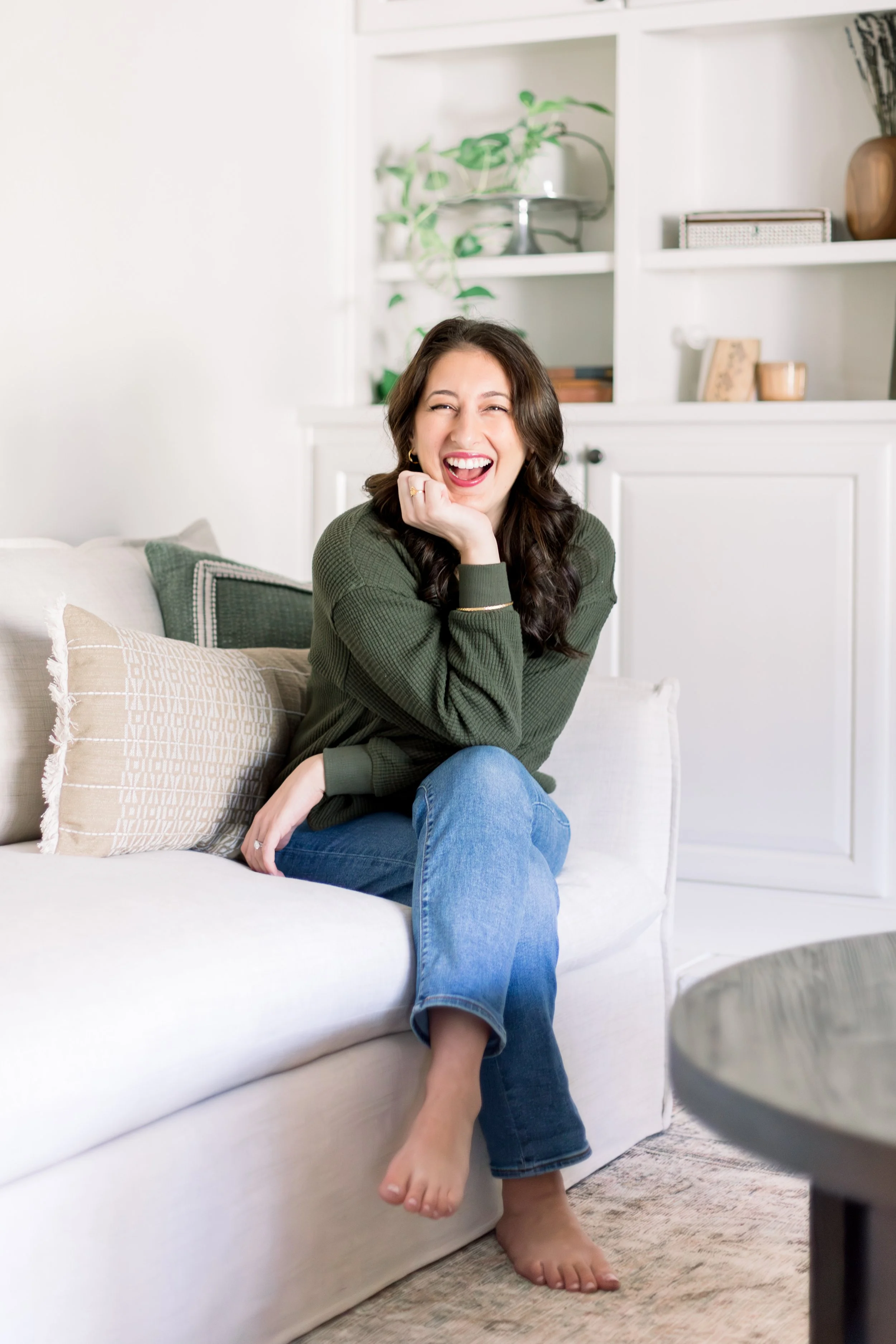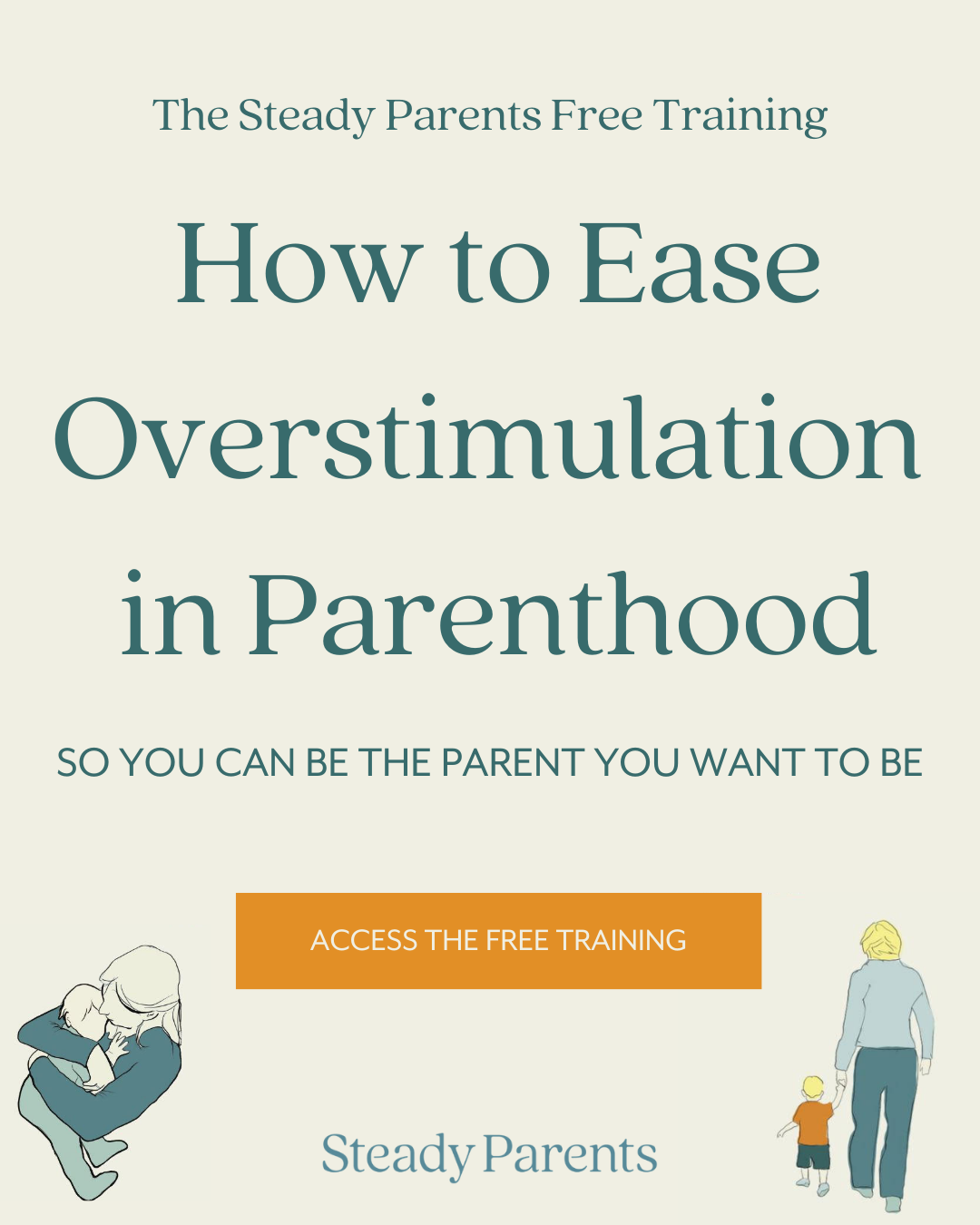4 Home Organization Tips for Parents with ADHD and Sensory Overload
There is no doubt that clutter in your home can lead to feelings of overstimulation and overwhelm for many parents. If you have a sensory processing disorder or ADHD, the mess can be all-consuming, preventing you from focusing on anything else.
We know there is a crossover between ADHD and sensory processing disorder, with about a 40-50% co-occurrence. This means if you have one, there’s a 40-50% chance that you also have the other.
But even if you have ADHD and don’t have sensory processing disorder, you likely still struggle with sensory regulation, so I am here to give you tips for organizing your home in a way that reduces the impact of sensory input on your nervous system.
The Benefits of Decluttering for Parents with ADHD and Sensory Overload
If your messy home is triggering feelings of stress and anxiety, it may be time to minimize the clutter. Keeping your home organized is just one of the many tasks affecting the mental load of parents.
Decluttering may feel hard to do, depending on the ages of your children, because there are likely toys in every room, clothes of all different sizes that need to be organized and donated, and leftover food on every table (if your kids are picky like mine).
It may be hard to let some items go if they carry a sentimental value but decluttering can offer several significant benefits for parents especially for those with ADHD (Attention Deficit Hyperactivity Disorder) and sensory overload.
These benefits include:
Reduced Sensory Overload
Sensory overload can be particularly challenging for individuals with sensory sensitivities, including many with ADHD. Excessive clutter in the environment can contribute to sensory overload by creating visual and auditory distractions.
Decluttering helps create a cleaner, more organized space with fewer visual and auditory distractions, making it easier for individuals with ADHD to focus and process information.
Improved Focus and Attention
A clutter-free environment provides a more conducive setting for concentration and task completion. With fewer distractions, parents with ADHD can better manage their attention and stay on track with their responsibilities.
Decluttering allows for better organization, making it easier to find items and stay on top of tasks, which is especially beneficial for individuals with ADHD who may struggle with forgetfulness.
When there isn’t “stuff” on every surface, our brains are less likely to start thinking “oh man, I need to take care of that before I get to ___.”
Reduced Stress and Overwhelm
Excess clutter can contribute to feelings of stress and overwhelm. Parents with ADHD often have to manage multiple responsibilities, and a cluttered environment can exacerbate these feelings.
Decluttering can create a calmer and more peaceful living space, which can have a positive impact on mental well-being.
This isn’t to say your home needs to be absolutely spotless at all times to find this sense of calm, but if you can focus on keeping what brings you joy and what is essential in your home, you will have less items to worry about.
Increased Productivity
Parents with ADHD often struggle with time management and productivity because of all of the executive functioning demands required of us. Cleaning can also be mundane, repetitive, and lacking immediate rewards, so we put it off until we are drowning in clutter.
But at the same time, you are bombarded with unpredictable sensory input from your children. A clutter-free environment can help streamline daily routines and make it easier to stay organized.
Better Sleep
A clutter-free bedroom can lead to better sleep quality. Quality sleep is crucial for individuals with ADHD, as sleep disturbances can exacerbate symptoms like impulsivity and inattention.
And a decluttered bedroom can promote a more restful and peaceful sleep environment.
Think about your bedtime routine. (If you don’t have one yet, be sure to check out my previous blog post about sleep).
If you spend the 10 minutes before you start to get ready for bed rage cleaning and throwing clothes around your room, your nervous system is not going to be ready to enter that relaxed state needed to get a good nights rest.
Tips for Organizing with ADHD and Sensory Overload in Mind
ADHD brains thrive when they are interested, which is why many people with ADHD tend to hyperfocus on things.
The challenge is finding the right balance between being meaningfully interested in something, and being so hyper-focused that basic activities of daily living (sleep, eating,caring for self and family) are ignored.
You need stimulation to stay engaged, but you have to find just the right amount to keep your brain occupied. Sometimes cleaning alone isn’t enough to achieve your optimal level of arousal, so here’s what you can try:
“ADHD brains thrive when they are interested, which is why many people with ADHD tend to hyperfocus on things. ”
Establish Routines
Routine is a structured sequence of events that you might carry out during your daily life. A habit is simply something that you do, every day, automatically.
Together, these two patterns can support your ability to manage your daily demands. They give your brain a chance to relax, or go on “autopilot,” because you know what is coming. You aren’t constantly wondering what is coming next, what sounds might be hitting you from which direction,what demands of parenthood are going to be thrown at you, and when you’ll be able to ever take a break.
Essentially, it removes the “high-alert” stage of parenthood, and gives you consistency.This consistency gives opportunity for the parasympathetic nervous system, the one responsible for the relaxation response, to take over.
As an example, think about the tasks that need to get done every night after dinner and establish a routine based around that, that you will do consistently every night in the same order. This might look like: load the dishwasher, wipe the counters, take the trash out, set-up your coffee pot for the next morning.
Sensation Layering
Find simple ways to switch things up. Layer in novel sensations to an already boring task. Anexample of this might be having a few options for scented soap for the dishes, to keep one sensory system (olfactory) more engaged, while you do the mundane task of washing dishes. Turn on music and dance while you clean, or add in crunchy or chewy snacks while you care for your children.
Mindful Anchor
It can also be helpful to focus on mindfulness during a task. Really be mindful of what you are doing as you are doing it. Notice the sensations you experience in the moment. This gives your mind an anchor so it can always have something tangible to come back to if it starts to wander off.
Set a Timer
Or use a song or playlist! This gives you the motivation to finish your task because you know it has an end point. (Like when the personal trainer says “Only 5 more!”) It also gives you a designated transition time which helps with your task initiation, or momentum.
Final Thoughts
It's important to note that decluttering doesn't have to be a massive undertaking all at once. Parents with ADHD can break the process into smaller, manageable tasks and enlist the help of family members or professionals, if needed.
Additionally, creating and maintaining organization systems can help prevent clutter from building up again in the future, providing ongoing benefits for individuals with ADHD and sensory sensitivities.
Give yourself grace as you work to establish organization in your home. This will likely be a gradual process and won’t happen overnight, but by implementing these strategies you’ll be one step closer to being able to manage your ADHD with a clean home.
The Sensing Your Needs in Parenthood online program will take you from feeling constantly overstimulated and dysregulated to feeling more balanced, present, and in control.
You’ll gain a deep understanding of the underlying causes of your sensory dysregulation and learn practical strategies to regulate your nervous system and prevent burnout, including tips for maintaining an organized house, even if you struggle with ADHD and SPD (sensory processing disorder).
Pin This for Later:









